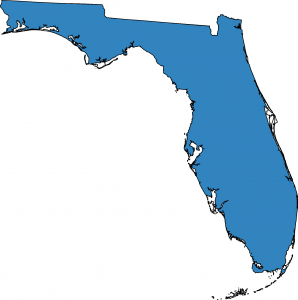 Back in 2010 a Florida man was arrested and incarcerated for a brief period after he posted a police officer’s home address online. He posted this information on the website RateMyCop.com, a popular website where members of the public can publicize their experiences with local law enforcement officers.
Back in 2010 a Florida man was arrested and incarcerated for a brief period after he posted a police officer’s home address online. He posted this information on the website RateMyCop.com, a popular website where members of the public can publicize their experiences with local law enforcement officers.
Hours Past the Deadline
Robert Brayshaw, a resident of Tallahassee, FL stated during a telephone interview that, “Just because I posted it, I got arrested. It wasn’t like it was the Pentagon Papers.” He made this comment just hours after a crucial deadline had passed for the state of Florida to file an appeal regarding a federal judge’s declaration that the First Amendment overrode the state’s law regarding the protection of police officer privacy.
Brayshaw said that he has been unemployed since 2008 following his arrest. He was arrested and spent a total of 3 hours in jail for publishing information that could be used to identify a police officer. According to the arrest record, he was jailed in relation to a 1972 Florida statute that states it is illegal to publish this type of information.
Brayshaw published the officer’s information because he was upset with a female police officer and a trespassing issue for which he was not charged. The website was established in 2008 and allows the public to publish officer’s names, personal information, and badge numbers. Police officers around the country were outraged as they felt having this information published online where everyone can see it online put them at risk.
Florida Went After Brayshaw
Using the Florida law, the state subpoenaed the website RateMyCop.com and Brayshaw’s internet service provider in order to obtain his identity and then charged him. This particular violation is a misdemeanor that carries a sentence of up to one year in prison. In time the case was dismissed due to procedural issues. But, Brayshaw filed a suit based on the concept that his arrest and the Florida law violated his rights to free speech.
According to U.S. District Judge Richard Smoak, the First Amendment does not in any way protect an individual who uses, “true threats, fighting words, incitements to imminent lawless action, and classes of lewd and obscene speech.” However, he went on to say that, ” is not in itself a threat or serious expression of an intent to commit an unlawful act of violence.”
Judge Smoak stated that while he understood the intent of the 1972 law, he felt that it went too far saying that, “While the state interest of protecting police officers from harm or death may be compelling,” the judge said the law “was not narrowly tailored to serve this interest.” As a result of the lawsuit filed by Brayshaw, the State of Florida and the city of Tallahassee agreed to pay him a total of $80,000 plus legal fees.
In essence, this case proved that anyone can get away with publishing the private information such as name, address, and phone number of a law enforcement officer without fear of punishment. Despite the fact that several other states have similar laws, it would seem that law enforcement officers have no right to any more privacy than the average citizen.
